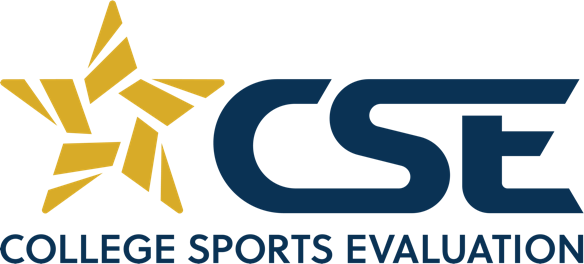5 Fits: What is your student-athlete's ideal college fit
Does your student-athlete have his or her sights set on playing in college? If so, there are many factors to consider when beginning the college recruiting process.
As a parent, searching for the perfect college fit can feel daunting. To get started, it is important to get crystal clear on what your student-athlete wants/needs out of their college experience to succeed.
Begin the college search by considering more than just the athletic program and division level that your athlete aspires to play at. At College Sports Evaluation, our team of expert coaches and evaluators suggest covering the following topics:
- College Location Fit: Universities of different sizes and concentrations span from coast to coast across the United States. While it may sound exciting to play at a school far away from home, it is important to consider what that will entail. Sit down with your student-athlete and broach the topic of college locations by talking in-depth about:
Proximity to Home: How frequently does your student-athlete want to come home every weekend for a home-cooked meal? Or only during the major holidays? The distance between home and school will affect how much they can see you (and how often you can be at their games) along with the cost of returning home (cost of gas to drive home vs. cost of a flight to fly home).
College Setting: Make sure your student-athlete understands the differences between attending a college in a small rural town versus a bigger metro area. Both settings have perceived pros and cons in relation to access to stores, entertainment, safety, travel accessibility, jobs, etc. There is a lot to consider when it comes to a location that your athlete needs to understand to be comfortable and confident with the location.
- Tuition/Overall Associated Costs Fit: The overall cost associated with attending a university can be nearly impossible for a high school student-athlete to fully comprehend. It is important to understand what costs are associated with the entire college experience and what potential student loans will be remaining. Consider reviewing the following for each university so that you can be armed with specific financial aid questions when it comes time to conversing with College Coaches:
Family Budget
Tuition (out of state vs. in-state)
Scholarships/Financial Aid Availability (academic vs. athletic financial support)
Cost of Living (average cost of rent, food, etc.)
Cost of Travel
Access to Student Jobs - Size Fit: When considering the size of a university, it is important to remember that the “student” comes before the “athlete”. In most athletic programs, achieving academic success is mandatory to maintain eligibility to compete. What does your student-athlete need to find academic success? Consider the following when assessing what kind of social and academic support your athlete will need to succeed:
Campus Size
Class Size
Academic Concentrations Available
Student Body Population
Extracurricular Activities Available - Education Fit: What does your student-athlete want to study and major in? It is quite possible that most student-athletes will not know the answer to this right away. If that is the case, they should consider a university that has a wide range of academic concentrations available. Or, if they have a clear vision of what career trajectory they would like to pursue, then it is important to find universities that offer all of the courses that will help get them there. Begin the academic search online to get a better feel for what academic departments are available.
- Athletic Division Level Fit: What is your athlete’s ideal college-level fit? From NAIA programs all the way up to Division 1, there is a wide range of competitive levels to choose from. Aim to find the level that your athlete can make the most impact at. Begin by asking your student-athlete and the Club Coach what level they think they would fit well at. Then, consider validating this by signing your athlete up for a College Sports Evaluation where they can receive sensor data and metrics that indicate their exact college-level fit.
- College Location Fit: Universities of different sizes and concentrations span from coast to coast across the United States. While it may sound exciting to play at a school far away from home, it is important to consider what that will entail. Sit down with your student-athlete and broach the topic of college locations by talking in-depth about:
Once you and your athlete have a clear understanding of these 5 Fits, you can intentionally approach the college recruiting process with more confidence and clarity!
2021 College Sports Evaluations Opportunities:

